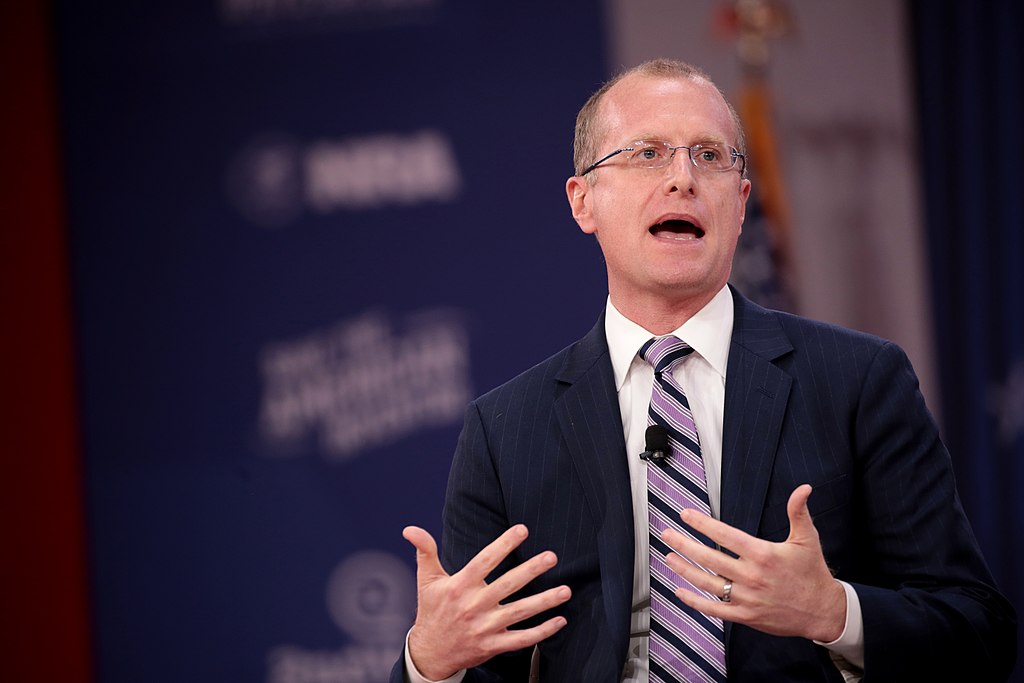As President-elect Donald Trump continues to shape his incoming administration, his pick for Federal Communications Commission (FCC) chair, Brendan Carr, has ignited a firestorm of controversy. Carr, who currently serves as an FCC commissioner, has taken a strong stance against what he calls a "censorship cartel" within the Big Tech industry, targeting companies such as Facebook, Google, Apple, and Microsoft. His bold statements come amid mounting concerns over free speech and the influence of tech giants on American society.
In recent remarks, Carr asserted that the monopoly power wielded by major tech platforms poses a grave threat to free expression and democratic discourse. He called for a comprehensive strategy to dismantle what he described as a censorship regime. While his comments have resonated with some as a necessary step to protect First Amendment rights, others view them as a potential overreach that could disrupt innovation and competition in the tech sector.
A Clear Mandate on Big Tech Reform
Carr’s nomination is seen by many as a signal of the Trump administration’s intention to overhaul the way Big Tech operates. His proposals include increasing transparency around content moderation policies, ensuring fairness in algorithms, and scrutinizing the relationships between government agencies and tech companies. Critics of Carr’s stance argue that the proposed regulations could lead to government overreach, stifling innovation and potentially politicizing regulatory decisions.
The FCC nominee has long been a vocal critic of Big Tech practices. In his tenure as an FCC commissioner, Carr championed initiatives aimed at reducing the power of tech monopolies and amplifying voices often censored under vague community guidelines. His focus on dismantling Big Tech’s grip has drawn both praise and skepticism from across the political spectrum.
Pushback and Concerns From Industry Leaders
Major tech companies have not taken Carr’s remarks lightly. Executives from Facebook and Google have expressed concerns about the potential impact of his policies on their platforms. "Regulation should aim to protect consumers without stifling innovation," one industry representative stated. The tech sector fears that dismantling large companies could lead to unintended consequences, such as reduced access to critical digital services.
Despite these criticisms, Carr’s proposals have struck a chord with conservative voters who have long criticized perceived biases in content moderation policies. His remarks align closely with Trump’s broader agenda of confronting corporate power and addressing the influence of technology on public discourse.
What Lies Ahead?
As Carr prepares for confirmation hearings, his nomination is expected to face significant scrutiny from both sides of the aisle. Questions remain about how his policies would be implemented and whether they could withstand legal challenges. Nonetheless, his rhetoric signals a shift in how the federal government may address the growing influence of Big Tech.
With the FCC poised to play a pivotal role in shaping the digital landscape, Carr’s nomination sets the stage for a contentious battle over the future of free speech and corporate accountability in America.



 Netanyahu Suggests Iran’s Supreme Leader Khamenei May Have Been Killed in Israeli-U.S. Strikes
Netanyahu Suggests Iran’s Supreme Leader Khamenei May Have Been Killed in Israeli-U.S. Strikes  Marco Rubio to Brief Congress After U.S.-Israeli Strikes on Iran
Marco Rubio to Brief Congress After U.S.-Israeli Strikes on Iran  Failure of US-Iran talks was all-too predictable – but Trump could still have stuck with diplomacy over strikes
Failure of US-Iran talks was all-too predictable – but Trump could still have stuck with diplomacy over strikes  Israel Launches Fresh Strikes on Iran After Death of Supreme Leader Ayatollah Khamenei
Israel Launches Fresh Strikes on Iran After Death of Supreme Leader Ayatollah Khamenei  Trump Announces U.S. Strikes on Iran Navy as Conflict Escalates
Trump Announces U.S. Strikes on Iran Navy as Conflict Escalates  Zelenskiy Urges Change in Iran After U.S. and Israeli Strikes, Cites Drone Support for Russia
Zelenskiy Urges Change in Iran After U.S. and Israeli Strikes, Cites Drone Support for Russia  Israel Strikes Hezbollah Targets in Lebanon After Missile and Drone Attacks
Israel Strikes Hezbollah Targets in Lebanon After Missile and Drone Attacks  Argentina Tax Reform 2026: President Javier Milei Pushes Lower Taxes and Structural Changes
Argentina Tax Reform 2026: President Javier Milei Pushes Lower Taxes and Structural Changes  UK Accepts U.S. Request to Use British Bases for Defensive Strikes on Iranian Missiles
UK Accepts U.S. Request to Use British Bases for Defensive Strikes on Iranian Missiles  Trump to Address Nation as U.S. Launches Strikes in Iran, Axios Reports
Trump to Address Nation as U.S. Launches Strikes in Iran, Axios Reports  AI is already creeping into election campaigns. NZ’s rules aren’t ready
AI is already creeping into election campaigns. NZ’s rules aren’t ready  Russia Signals Openness to U.S. Security Guarantees for Ukraine at Geneva Peace Talks
Russia Signals Openness to U.S. Security Guarantees for Ukraine at Geneva Peace Talks  Middle East Conflict Escalates After Khamenei’s Death as U.S., Israel and Iran Exchange Strikes
Middle East Conflict Escalates After Khamenei’s Death as U.S., Israel and Iran Exchange Strikes  U.S. Deploys Tomahawks, B-2 Bombers, F-35 Jets and AI Tools in Operation Epic Fury Against Iran
U.S. Deploys Tomahawks, B-2 Bombers, F-35 Jets and AI Tools in Operation Epic Fury Against Iran  Trump Says U.S. Combat Operations in Iran Will Continue Until Objectives Are Met
Trump Says U.S. Combat Operations in Iran Will Continue Until Objectives Are Met  Iran Supreme Leader Ayatollah Ali Khamenei Killed in Israeli, U.S. Strikes: Reuters
Iran Supreme Leader Ayatollah Ali Khamenei Killed in Israeli, U.S. Strikes: Reuters  Trump Launches Operation Epic Fury: U.S. Strikes on Iran Mark High-Risk Shift in Middle East
Trump Launches Operation Epic Fury: U.S. Strikes on Iran Mark High-Risk Shift in Middle East 
































